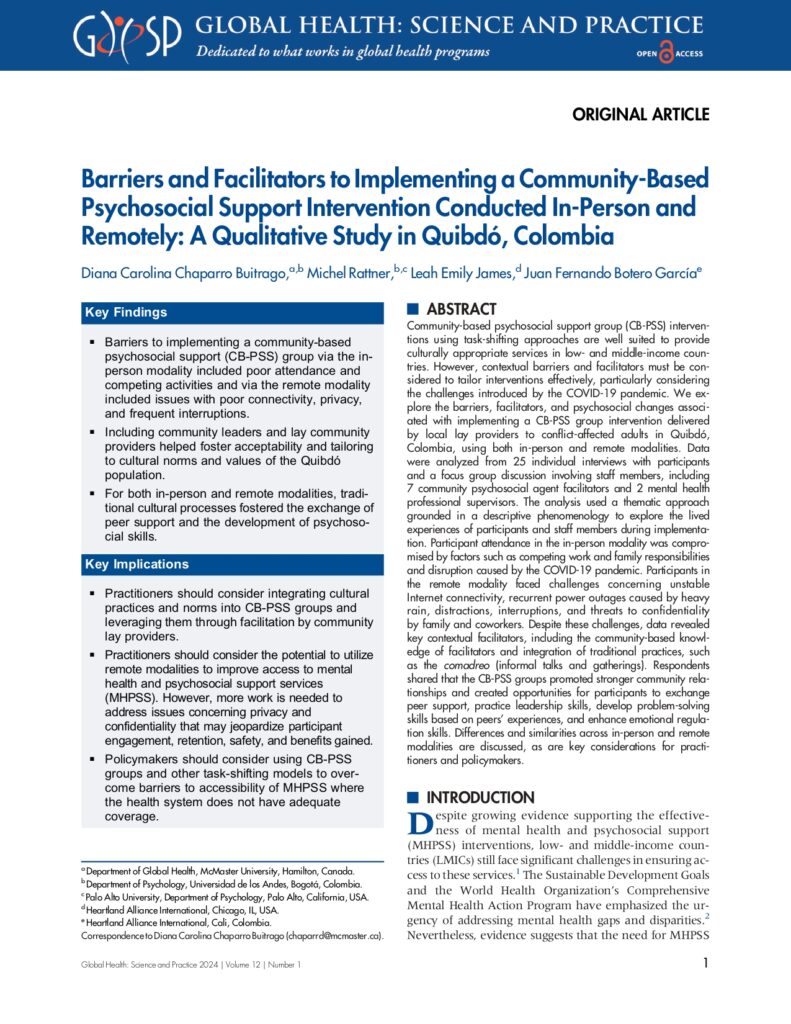Community-based psychosocial support group (CB-PSS) interventions using task-shifting approaches are well suited to provide culturally appropriate services in low- and middle-income countries. However, contextual barriers and facilitators must be considered to tailor interventions effectively, particularly considering the challenges introduced by the COVID-19 pandemic. We explore the barriers, facilitators, and psychosocial changes associated with implementing a CB-PSS group intervention delivered by local lay providers to conflict-affected adults in Quibdó, Colombia, using both in-person and remote modalities.

